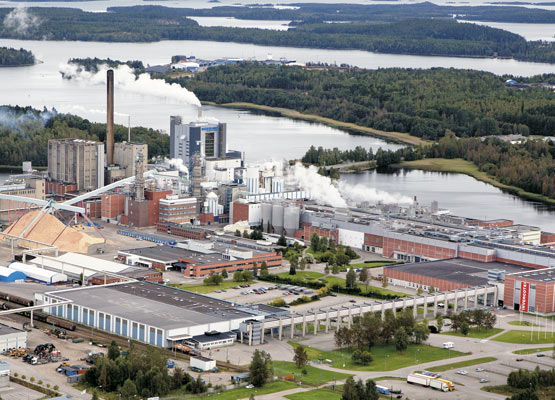North West Manufacturing Under Threat Again
/ins The North West of England has long been the lifeblood of the UK’s heavy industries and its manufacturing sector. Despite its recent resurgence, with 15,000 manufacturing jobs created since 2010, the region now faces a new potential blow from the energy regulator, Ofgem.
Ulf Lofgren, director of a Mill in Cumbria, has been one of the leading opponents, arguing that “the competitiveness of the manufacturing industry in the North West is being undermined by a state agency that hasn’t considered the impact it is having on communities”.
Ofgem, the UK’s electricity and gas regulator, is concerned that with increasing numbers of both domestic and industrial users at least partly-off grid, there is a looming shortfall in the costs for running the network.
It is seeking to address this through its Targeted Charging Review, which recently closed the consultation period with industry.
Most users have responded positively to this principle, recognising that everyone should pay something towards the network’s fixed costs. But they’ve been keen to ensure that this does not discourage investment and costs are proportionate to use.
Ofgem are proposing a new fixed charge by user category (i.e. domestic, retail/ light industry, large users). On current information, this model will increase price differences by region meaning the North West’s charges are 26 times that of the lowest charged regions. These regional disparities would increase by a further ten-fold for Iggesund Paperboard under the other charging model Ofgem are still considering.
This would mean several millions of pounds in extra fees for manufacturers across the North West and would be a significant blow for the region, where manufacturing industry employs over 340,000 people and contributes £26bn to the UK economy.
At a time of increased economic uncertainty, energy intensive industries in the UK already face high costs versus other EU competitors. Now, industries based in the North West will be hit with a double-disadvantage with increased costs.
Ironically, this moves against the Government’s own intentions. Investment in combined heat and power plants (CHPs) has been strongly supported by the Government is remains vitally important to the UK. Some 80% of the paper manufactured in the UK is made at the 15 paper mills with a CHP generator.
Financial incentives for constructing and operating CHP have been reduced and removed over the past few years which seem to be self-defeating policy changes which are in direct contradiction of Government’s stated policy of support for high efficiency co-generation.
Iggesund is a leading manufacturer of paperboard and their products are used in major brands in pharmaceuticals, cosmetics and food and drinks. They are a significant employer in Workington, employing 400 people directly and supporting a further 1200 in the supply chain. In 2013, following Government incentives, Iggesund invested over £100 million in a biomass CHP plant at its Workington Mill.
“This is truly outrageous”, says Mill Director Ulf Lofgren. “We need stable and predictable conditions, and when Ofgem suggests a charging model which includes geographical discrimination within the UK, we are baffled”.
“What has the North-West of England done wrong to deserve this”, he adds and points out some of the regional differences that are the consequence of Ofgem’s Targeted Charging Review.
Any significant further increase in costs as a result of Ofgem’s proposals would harm the competitiveness of firms in the North West in particular; and would at the very least, force Iggesund’s Swedish parent company to reconsider any future investment in the UK.
Iggesund believe that a ‘regional equalisation mechanism’ would be preferential so that manufacturing companies in the North West are not unfairly disadvantaged. The Government has been very keen to encourage a Northern Powerhouse and to keep UK manufacturing alive, but these proposals from Ofgem will dent the long-term survival of the ‘Made in Britain’ brand, especially in the North West.
Caption:
“The competitiveness of the manufacturing industry in the North West of England is being undermined by a state agency that hasn’t considered the impact it is having on communities”, says Ulf Lofgren, Managing Director of Iggesund Paperboard’s paperboard mill in Workington, Cumbria.
Iggesund
Iggesund Paperboard is part of the Swedish forest industry group Holmen, one of the world’s 100 most sustainable companies listed on the United Nations Global Compact Index. Iggesund’s turnover is just over €500 million and its flagship product Invercote is sold in more than 100 countries. The company has two brand families, Invercote and Incada, both positioned at the high end of their respective segments. Since 2010 Iggesund has invested more than €380 million to increase its energy efficiency and reduce the fossil emissions from its production.
Iggesund and the Holmen Group report all their fossil carbon emissions to the Carbon Disclosure Project. The environmental data form an integral part of an annual report that complies with the Global Reporting Initiative’s highest level of sustainability reporting. Iggesund was founded as an iron mill in 1685, but has been making paperboard for more than 50 years. The two mills, in northern Sweden and northern England employ 1500 people.
Further information:
Staffan Sjöberg
Public Relations Manager
staffan.sjoberg@iggesund.com
Iggesund Paperboard
SE-825 80 Sweden
Tel: +4665028256
Mobile: +46703064800
www.iggesund.com












Let us know if you are going to use this press release. Thank you!